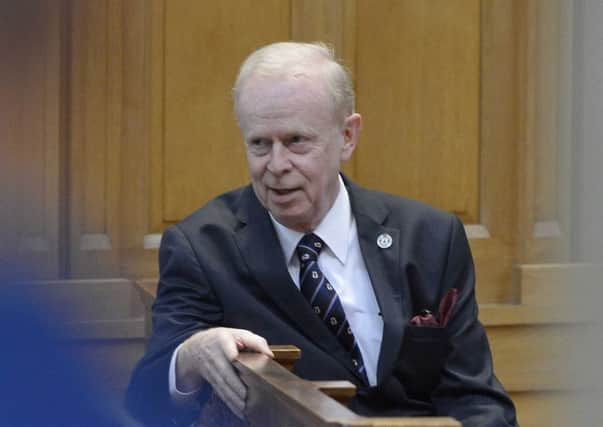New IRA-Libya compensation bill makes its first appearance


The proposer of the bill – UUP peer Reg Empey – said the DUP has been supportive of it, and he likewise expects support from Labour and Conservative quarters.
However, he indicated he is “disappointed” not to have seen some mention of any bid to attain compensation for victims of Gaddafi-sanctioned terror in Monday’s deal between the DUP and Conservatives.
Advertisement
Hide AdAdvertisement
Hide AdThe bill is called the Asset Freezing (Compensation) Bill, and was introduced to the House at about 3.30pm.
Its aim is to give the UK Treasury access to an estimated sum of roughly £9.5billion, made up of assets of the former Libyan dictator Muammar Gaddafi.
The money is held in the UK, and is frozen.
Gaddafi – a major funder of the IRA – was killed in 2011 as an uprising against him plunged his north African nation into turmoil.
Lord Empey’s previous effort to pass such a bill fell due to the suspension of Parliament for the snap election.
Advertisement
Hide AdAdvertisement
Hide AdThe next reading of the new bill could come in autumn, he said.
“People have to understand – you’ve got to be persistent,” he told the News Letter.
Lord Empey said he envisages that only a “relatively small” proportion of the estimated £9.5bn would be used to compensate IRA victims.
Longer term, he added he would like to see a fund set up to aid Gaddafi’s victims in the UK and Libya alike, with both governments – plus western companies which have Libyan contracts – paying into it.
Advertisement
Hide AdAdvertisement
Hide Ad“Obviously, the biggest number of victims of Gaddafi are in Libya,” he said, adding that he is not aiming for a “smash and grab” on the Gaddafi reserves.
However, he said he feels the Treasury is likely to oppose his bill, because they “will not want to upset the reputation of the City of London as a place to bring money”.